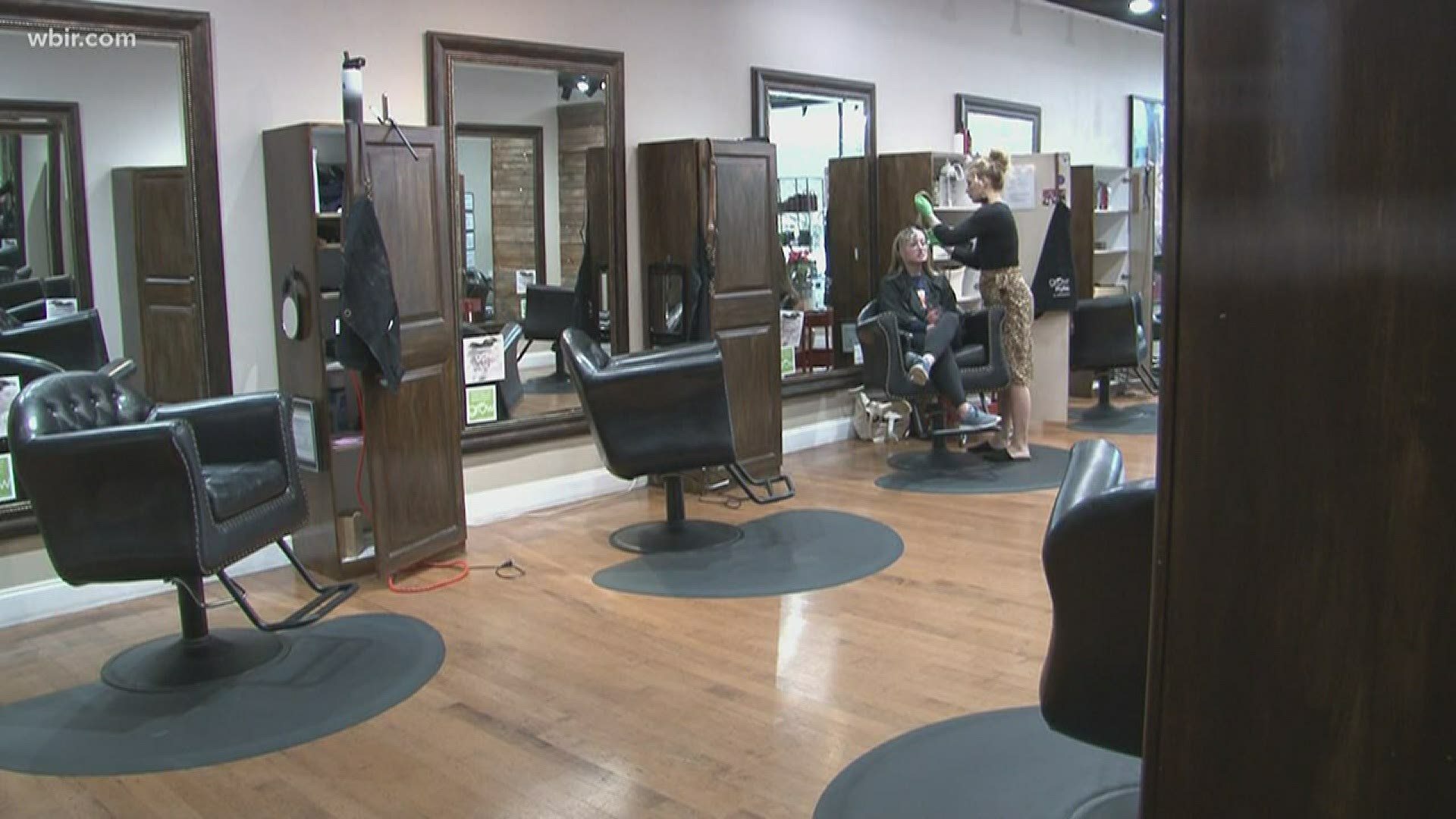TENNESSEE, USA — On Wednesday, April 29, Governor Bill Lee told legislators he will allow salons and barbershops to open in 89 non-metropolitan Tennessee counties on Wednesday, May 6.
He released the state's official guidance for those businesses on Thursday, which includes limiting capacity, operating by appointment only, the wearing of face masks and social distancing.
“As we continue a measured reopening of the economy, it’s critical we provide evidence-based guidance to businesses so they can keep their employees and customers safe,” said Tennessee Governor Bill Lee. “The very nature of close contact businesses calls for strong solutions and we’re inspired by the willingness of these small business owners to take the Tennessee Pledge. These guidelines will allow thousands of businesses to reopen, put their employees back to work, and serve customers in a thoughtful and safe manner.”
RELATED: Knox county salons, barber shops to open Friday while surrounding counties fear loss of business
Business Process Adaptations
• Limit the number of customers to 50% of fire code capacity, and practice strict social distancing between customers
• Services will be offered by appointment only; no walk-ins
• Make appropriate physical modifications to accommodate social distancing. Workstations should be at least 6 feet apart, with additional measures taken as necessary to ensure that all people stay 6 feet apart at all times except for the staff providing a service to their client; physical barriers to be used where necessary
• Prohibit use of waiting areas (e.g., could adopt such practices as notifying customers by call or text message) or serenity lounges; limit use of other common areas by multiple people at one time (e.g., elevators, breakrooms, etc.)
• Ensure thorough workstation and equipment disinfection after each customer (i.e. sanitize all equipment, instruments, capes, smocks, linens, chairs and work area); alternatively, utilize single-use or disposable items
• Implement enhanced sanitization of commonly touched surfaces and equipment (i.e., at least every two hours and when visibly soiled), using CDC recommended sanitizers and disinfecting protocols
• Discard any single-use tools (e.g., files, buffers, neck strips) immediately after use
• Daily deep cleaning and sanitization to be completed for high-touch areas (tanning beds, massage tables, salon chairs, etc.)
• Use appropriate temperatures for washers and dryers to ensure thorough sanitization of towels, linens, etc.
• Do not allow non-customer companions to accompany customer during a service
• Do not allow group or communal settings for close contact personal services (e.g., couples’ massages, salt rooms, saunas, pools)
Consumer protection
• Services that require removing face coverings (e.g., beard shaving/trimming, facials, etc.) are not permitted in Phase 1
• Do not offer any self-serve food or beverages. Temporarily close water fountains. Encourage users to provide their own water
• Prohibit congregating in break rooms, check-in counters
• Customers should wear a cloth face covering at all times while in the premises (not N-95 or medical masks, which should be reserved for healthcare workers) and as recommended by the CDC and executive order of the governor. Use other personal protection items as recommended by the CDC
• For massage, prone positions could be uncomfortable or dangerous for clients who are wearing face coverings. Accordingly, massage professionals may consider other appropriate precautions such as draping a client’s head and face cradle cover with a thin cotton pillowcase. Otherwise, a face covering should be worn during portions of treatment in which the client is not prone or facedown
• Screen customers for illness upon their entry into the premises
Employee Protection
• Screen and temperature-check all employees reporting to work for COVID-19 symptoms
• Employees should increase hygiene practices—wash hands more frequently, avoid touching face, practice good respiratory etiquette when coughing or sneezing. Change any protective garments on a regular basis and sanitize reusable garments such as aprons or smocks at least once per day.
• Employees should wear a cloth face covering (not N-95 or medical masks, which should be reserved for healthcare workers) and other personal protection items as recommended by the CDC; if masks become wet or visibly dirty, the mask should be replaced
• All employees should wash hands between serving each customer, and more frequently as necessary. If appropriate for the service provided, gloves are recommended and should be discarded after each customer. The use of gloves should not be considered a replacement for frequent handwashing
• Perform regular disinfection of high-touch surface areas (e.g., door handles, counter space, light switches, tools and instruments) at least every two hours and when visibly dirty
View the full guidance here.
In Lee's original reopening plan for 89 of the state’s 95 counties called Tennessee pledge, salons and barbershops were not included, and neither were gyms. He has since altered those plans.
Six counties – Shelby, Madison, Davidson, Hamilton, Knox and Sullivan – will create individual plans in consultation with their locally-run health departments

